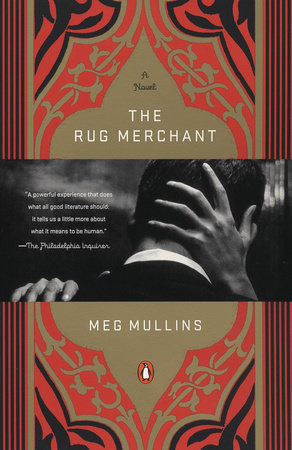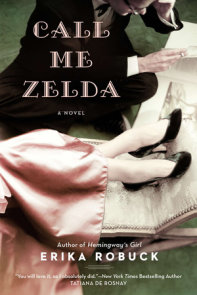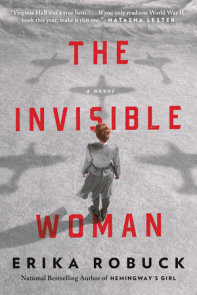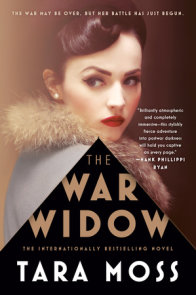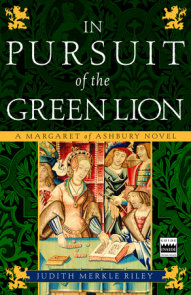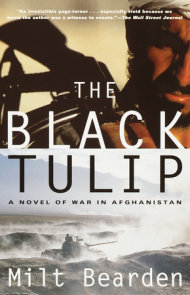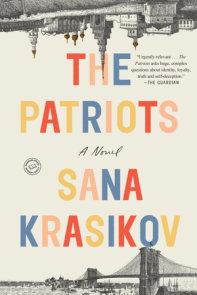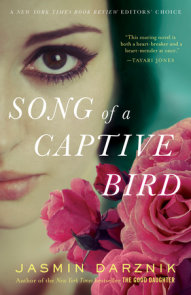READERS GUIDE
Questions and Topics for Discussion
INTRODUCTION
Ushman Khan is a long way from home. In New York City, he is a world apart from his beloved wife, Farak, and his ailing mother, whose spine was crushed by an earthquake that killed 35,000 Iranians and changed their lives forever. Life in New York is indeed different and lonely, yet Ushman is determined to be successful, to sell the beautiful rugs that Farak sends him and earn enough money to have his family join him to start a new and prosperous American life.
And, indeed, Ushman is a success, for not only does he prove himself to be a good businessman, but his customers find his expert knowledge of his carpets and their origins an attractive selling point. He has one especially loyal customer, Mrs. Roberts. Alone in a big Upper East Side apartment with her dying husband, she tries to fill the emptiness in her life by buying carpet after carpet, and these sales help to put Ushman on solid financial ground.
But as pervasive and unseasonably chilling as the early summer rain falling on the city, the reality of Ushman’s life and his history take hold. Farak, having suffered the pain of several miscarriages and the stigma of having come to her marriage from a lower class, confesses to Ushman that she is now pregnant with another man’s child and plans to begin a new life with him. Ushman is devastated, paralyzed by the thought that he has no idea what will now become of his life. Until he meets Stella.
Stella is nineteen, blond, and beautiful, an unlikely counterpart to this older, Middle Eastern man. Yet Stella has her own demons to contend with, including her mother’s recent suicide attempt. And she, too, being a southern girl, is a stranger to New York.
Ushman and Stella begin a relationship that is at once powerful and precarious—each gains a sense of strength and belonging from the other, yet underneath it all is the unspoken truth that a future together is unlikely if not impossible. For Stella, though, what is important is that she now has a confidant, a man who looks at her not as a child but as a woman; and for Ushman, it is also the present that matters: this young, beautiful, American girl has looked at him and seen, with clear eyes and an open heart, not an immigrant but a man.
When their relationship comes to a sudden yet somehow expected end, they are both stronger and better able to deal with what life has in store. For Stella, that means returning to her life as a student at Columbia, and reconnecting with her parents at home. For Ushman, it means forgiving Farak, and offering himself to the person who perhaps has needed him most but whom he has been avoiding emotionally: his best client, the recently widowed Mrs. Roberts. Ushman is now able to give her what she has really been after for these many months: not the perfect carpet, but the perfect company.
The Rug Merchant is a beautiful portrait of loneliness in a city with millions of people. It is also a touching meditation on finding connection in unexpected places and learning how our seemingly inconsequential lives can quite suddenly and unexpectedly take on a depth of meaning and happiness when we realize a fundamental truth: Not only do we need other people, but, no matter who we are or where we come from, we all have something precious to give.
ABOUT MEG MULLINS
Meg Mullins earned her MFA at Columbia. The story that formed the basis of this novel appeared in the Best American Short Stories in 2002.
A CONVERSATION WITH MEG MULLINS
Would you share with readers the source of the original idea for the story of The Rug Merchant?
Originally, when I first conceived the short story, the idea was based on a couple of family anecdotes that I conflated into one story. I was six when my grandmother died suddenly. Home alone, she’d had a heart attack and collapsed on the bedroom rug. When she fell, she hit her head and the wound left a small pool of her blood on the rug. A few days later, my grandfather silently carried the rug to the curb for the trash collector and stood there, waiting, until it was picked up and taken away. That image haunted and inspired me. But as often happens in fiction, an image or an anecdote that may have sparked the idea will become almost unrecognizable in the end. Then, after finishing the short story, I had fallen in love with Ushman as a character and was compelled by my curiosity to continue writing about him as a man trying to find his way after a devastating divorce.
You have captured the essence of Ushman’s character so well—both his inner and outer life. One can do research on the factual differences between cultures, but how do you penetrate the heart and soul of a character when his background is so different from your own?
The beauty of humanity is that none of us is so very different at our core. As I was writing about Ushman, I never felt he was unlike me. I certainly have a great respect for the vast differences in our cultures and our backgrounds, even our genders, but I loved discovering similarities, too. Love and pain, loneliness and desire are universal experiences and we are all linked by them. Stories that I admire are usually those that remind me of the power of empathy, the natural human ability to feel deep emotion for those outside of ourselves.
As a short story writer who has now written your first novel, would you talk a bit about how the writing process differs between the two forms?
For me, the thought of writing a novel was more than a little terrifying. I wasn’t sure I could maintain my focus over two years. But what I discovered was that the process is very similar. It’s still a sentence at a time. The gratification of a finished product is delayed, but the excitement of a first draft is extended.
The Rug Merchant beautifully illuminates how people from dramatically different cultures can still connect in a powerful way. In light of the current state of the world, (the Iraq war, 9/11), what role, if any, do you think books such as yours and literature in general play or should play in either educating the public or shaping public opinion? Was setting the novel pre-9/11 a deliberate choice, and how, if at all, might the story have been different had it been set post-9/11?
I don’t think literature has a role in educating people about a specific issue or current event or shaping public opinion aside from the lessons that literature teaches us about life in general. Again, for me, it goes back to the question of empathy. A great book’s beauty is that of looking at the world through different eyes, if only for a short time.
I definitely chose to set the novel pre-9/11, simply so that there would not be a greater temptation to make assumptions about an entire people or culture based on one man’s story. On the other hand, as America was invading Iraq, I couldn’t help but be much more aware of the real and actual devastation we were causing on the ground to real and actual people, not just “Iraqis.” I think there is a tendency to dismiss a group of people about whom we feel we have little in common—a group of people who live in a country far away with different customs and beliefs. It’s tempting to believe that perhaps they don’t feel pain or loss the way we do. That somehow it must not affect them as much as it would us. Whereas, if we realize that each of those casualties or fatalities is a husband or a brother or a wife or a mother or a cousin or a playmate or a lover, it becomes much more difficult to overlook them—much more difficult to pretend that pain or loss feels different if you’re living in the Middle East.
The mothers in the novel certainly cause their offspring much angst. Stella is tortured by her mother’s obvious mental instability, and Ushman is tormented by his mother’s self-pity. Would you talk about the role of the mothers in your story and how, or if, becoming a mother yourself influenced your writing?
Mothers are women with children. There is no magic that delivers us from angst and doubt. As a young child, though, both of my parents seemed utterly stable and untroubled. It was a huge gift that they didn’t allow me to see their difficulties. I never worried about them or knew if they were struggling. Gradually, as I grew up, I understood that, of course, they each had their own difficulties.
When I became a mother I secretly hoped that I would be admitted to some club in which all of life’s questions are answered. I’m still waiting. It’s nearly comical to me when one of my kids stumbles upon some terrific existential question and looks at me for the answer as though it should be as easy for me to answer as “What’s for breakfast?” Becoming a mother is extremely humbling. I think that is good for writing. To be reminded of all that I don’t know—of all of the wonder in the universe—is a tremendous inspiration for me.
When their relationship ends and they are discussing the future, Stella reminds Ushman, “Don’t forget that there is joy, too. You can’t leave that out of your sad stories.” Does Stella’s statement reflect your own “life philosophy”—i.e., do you believe there is some joy in every story, no matter how tragic?
Stella’s point of view is something I’m trying to cultivate. Deep down, I struggle against a very cynical nature. Having recently lost my father to cancer, I am drawn to philosophies that remind us of our inability to understand the complexity of life. And I try to see the joy in the smallest of details, the way my father did before he died. Just the magnificent color of a blue summer sky can be heart-stopping. In that same way, a true and meaningful connection felt between two people, even if it ends unhappily, is a miracle.
I tell myself to be grateful for the pain of grief or loss because it is a direct result of the intensity of love or joy that has been felt. And those feelings are life’s gifts. So, yeah, don’t forget the joy.
What books have inspired you in the past and what authors are you currently reading?
I have been hugely inspired by many contemporary books, such as Charles Baxter’s The Feast of Love, Jeffrey Eugenides’s Middlesex, Jhumpa Lahiri’s Interpreter of Maladies, Nicole Krauss’s The History of Love, and many, many others. But I also return often to more classic authors like Grace Paley, Virginia Woolf, Jane Austen, Anton Chekhov, William Faulkner, and Vladimir Nabokov.
What are you working on next?
I’m working on another novel that I’m sorry I can’t say anything about. I find it very difficult to describe a project while in the middle of it—I am afraid of breaking the spell.
DISCUSSION QUESTIONS






